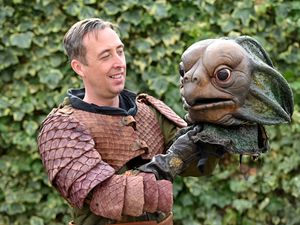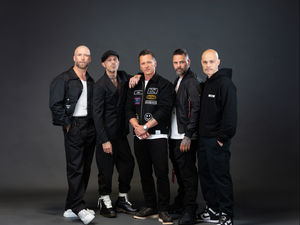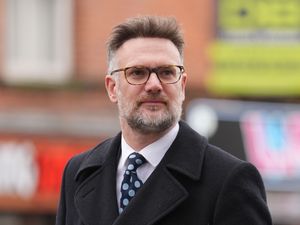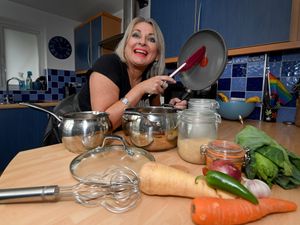I chose not to lose the booze completely, says reformed Adrian Chiles
Mindful drinking is the way to go, says TV and radio presenter after he was shocked by how much he was putting away.
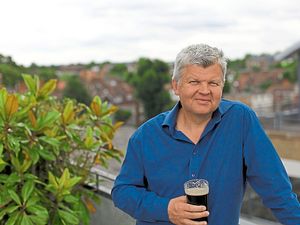
When broadcaster Adrian Chiles started to investigate his drinking, he was in for a rude awakening.
He never thought he had a problem, going to the pub after work, downing a few pints most nights, enjoying a few glasses of wine with dinner.
He wasn’t a fall-over drunk, didn’t get hangovers or reach for a bottle in the morning, never woke up in shop doorways after a heavy night.
The broadcaster, who grew up in Hagley, in Worcestershire, and is famous for his love of West Bromwich Albion, was enjoying career success, having had high-profile TV jobs on The Apprentice: You’re Fired!, The One Show, Daybreak and football coverage on ITV Sport as well as numerous radio gigs including Radio 5 Live.
But then, conscious of how much he was drinking, he focused on himself for a 2018 BBC documentary Drinkers Like Me to test how his regular drinking affected his health. He discovered he was drinking up to 100 units a week and a doctor told him he had signs of liver damage.
Unlike other drinkers, who have completely stopped, Chiles, 55, believes he has worked out how to moderate his drinking, which he details in his new book The Good Drinker: How I Learned To Love Drinking Less.
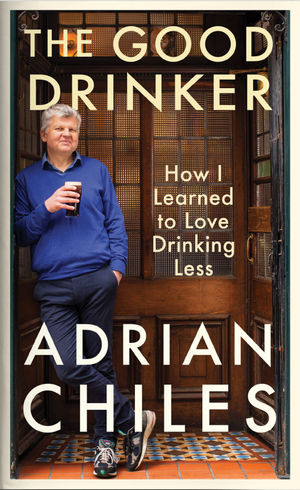
He remains honest. Today, he says he drinks between 20 and 30 units a week, still greater than the recommended 14 but much less than he was.
These days, he’ll have a shandy (but with soda water instead of lemonade) and alternate his drinks with glasses of water.
He’s also quite taken with alcohol-free beer and is keen to spread the word through his book and an associated tour, which will take in The Holroyd Community Theatre in Oswestry on Monday.
He says: “A game-changer is draught alcohol-free beer in pubs because it’s got equal standing to other beers. When you’ve a pint of it in your hand, you look and feel the same as anybody else.”
He has been asked why he didn’t give up completely and reflects that alcohol is so woven into the fabric of his life that it would take a lot of unpicking, that most of his friends are drinkers and while there is some degree of alcohol dependence, he doesn’t regard himself as an alcoholic.
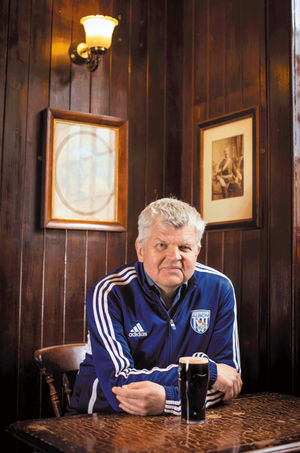
Christmas is now a different affair to how it was more than a decade ago, he reflects. This year he anticipates doing a lot of driving back to the West Midlands to see his wider family.
He recalls of years gone by: “I’d do all the cooking and would be drinking as I cooked, then go to the pub for a couple of pints at lunchtime, then start drinking wine. By four-to-five o’clock, I would be absolutely stuffed and all foggy with booze. I’d doze off in front of the telly – where’s the enjoyment in that?
“I can’t stress how much more enjoyment I get out of it now for drinking less of it.”
Chiles started drinking enthusiastically in his teens, continued in his 20s and although by his 30s he had small children, he still spent a fair amount of time in the pub. By his 40s he was famous and successful, socialising a lot, which always involved drinking.
His pal, the comedian Frank Skinner, told him he envied his level of drinking, his ability to drink sociably without ending up falling asleep in a skip. Skinner hasn’t touched a drop in decades.
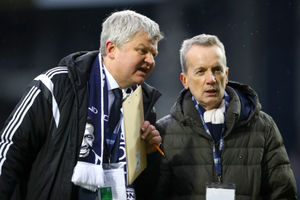
In his book Chiles reflects on how many of those 100 units a week he really enjoyed, wanted or needed – which he reckons is no more than a third of them – and how to find a way of enjoying the drinks he wanted and ditching the rest.
The presenter, who was divorced from broadcaster Jane Garvey with whom he has two daughters in 2009, and married Guardian editor-in-chief Katharine Viner in September this year (he’s a regular columnist with the paper), recalls: “I was looking at my drinking charts the week before my wedding and the week after and the numbers were very high. But the point is, I can see it and I forgive myself.
“It all boils down to what I call mindful drinking, being aware of what you’re drinking, not pointlessly drinking.”
These days he has mindful measures in place, he continues.
“If it’s somewhere where there’s wine flowing, I’ll have a glass of wine but when I’ve finished that I wouldn’t drink any more wine until I’d filled that same glass with water and finished that. That’s reducing the volume and stops you being dehydrated.”
He has thought hard about how much enjoyment alcohol realistically gives you.
“On any given night, why do you want to be smashed out of your head by nine o’clock? It’s only the first drink that gives you a change of state. Every subsequent drink is basically a vain attempt to recreate that feeling that you got with the first drink.”
He doesn’t rule out giving up booze completely in future, but remains open-minded about it.
“The reason I drink less is because I really like drinking. When I’m an old bloke, I want to be able to wander down to the pub, sit there, have a pint and a read of the paper and shamble home. I don’t want it to be the case that my liver’s knackered or that I can’t drink one drink without drinking 10. I want to be a good drinker.”
Moderating your drinking during the festive season

1. Estimate how much you’re going to drink
“Try to work out how much you are likely to drink over Christmas and New Year. Download an app like Drink Less. Use it to work out roughly what you will put away in the two weeks from Monday, December 19. Input what you think you’ll drink that day, and subsequent days, up to and including New Year’s Day.
“Be honest with yourself and err on the side of overestimating rather than underestimating.
Consider it a bit of a win, an achievement, a marginal gain, if you end up drinking any less than what you’ve predicted.”
2. Work out if you really need it
“You might look at the number of units you’ve calculated and think, hang on a minute, do I really need that much? If that’s the case then figure out which of the drinks, on any particular day, you’ll definitely enjoy and benefit from. Then try to stick to them and not bother with the rest.”
3. Don’t let others persuade you
“Resolve not to drink anything that you’ve been guilted into drinking. I’ve taken a solemn oath never again to be pressured into having a drink.
“Without wishing to come across as ‘un-Christmassy’, I think there should be a special place in hell for anyone who says anything to you along the lines of, “C’mon, it’s Christmas, have another one! What do you mean you’re not drinking? Scrooge!’”
4. Use Dry January wisely
“If you’re planning on doing Dry January that’s good. But if you’re doing it to give yourself a free pass to drink like a fish over Christmas and New Year, that maybe isn’t such a good thing. Perhaps use it to incentivise yourself to have some days off the booze over Christmas – for every dry day you have, shorten your Dry January by a day.”
5. Alternate booze with water
“If wine is being freely poured, fill your glass with water once you’ve drunk the wine. Don’t drink any more wine until you’ve finished the water.”
6. Consider alcohol-free drinks
“If you’re the kind of drinker who struggles to stop drinking once you start, consider making your first couple of drinks alcohol-free.”
7. Give alcohol less credit for how you feel
“Remember that if Christmas is great for you, it’s probably because you’re with your loved ones and people you like who you’ve not seen for a while. It’s not because you’ve drunk so much. Don’t give alcohol all the credit.”
The Good Drinker: How I Learned To Love Drinking Less by Adrian Chiles is published by Profile Books, priced £14.99 and is available now.


